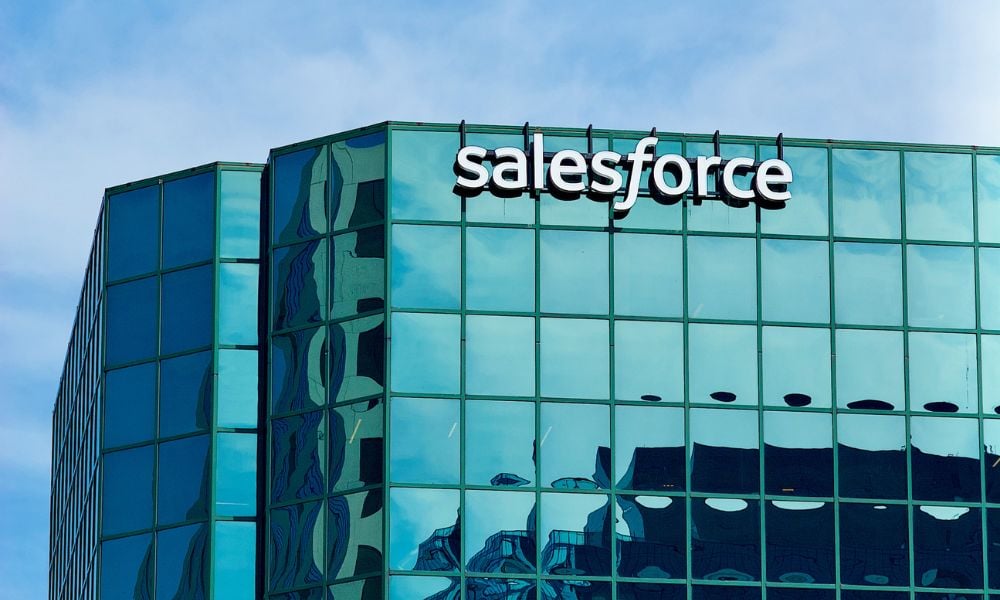
Tech giant 'hired too many people'

2023 is looking awfully similar to 2022, as another high-profile employer is reducing headcount ahead of an anticipated recession.
Salesforce, which has about 80,000 employees, has announced it’s laying off 10% of its workforce, according to a regulatory filing on Wednesday. The goal is to complete its staffing restructuring by the end of fiscal 2024.
The San Francisco-based technology giant – the largest private-sector employer in the city – has almost tripled its workforce in the past four years, Bloomberg reported. Dozens of acquisitions, including buying Slack in 2021, have also contributed to the ballooning employee base. For example, headcount swelled by more than 30,000 from the dawn of 2020 to the end of October 2022.
“The environment remains challenging and our customers are taking a more measured approach to their purchasing decisions,” Salesforce CEO Marc Benioff said in a letter to employees on Wednesday, according to Bloomberg. “As our revenue accelerated through the pandemic, we hired too many people leading into this economic downturn we’re now facing, and I take responsibility for that.”
Those being laid off will receive a minimum of about five months of pay, health insurance, career resources and other benefits, according to Benioff.
Ahead of an economic downturn, three out of four (78%) workers are fearful they will lose their jobs, according to a survey from Insight Global, a national staffing services company. Meanwhile, 56% of American workers say they don't feel financially prepared for a recession or they don't know how they would prepare for a recession. More than half (54%) would be willing to take a pay cut, even with inflation at a 40-year high, to avoid being laid off if there were a recession.
“It's unfortunate we're already seeing some companies turn to mass layoffs because I believe layoffs should be the absolute last resort,” said Bert Bean, CEO of Insight Global. “Instead, I encourage leaders to consider other solutions, such as building a plan that avoids layoffs and helps you grow through a recession. Get your employee base executing on that, because when you bounce back from a recession, you'll need your people more than ever.”
Of course, HR leaders who experienced the global recession of 2008-09 are better positioned to weather this potential storm. They’ve learned what works and business leaders will be turning to them to take the helm. As for HR professionals who are about to enter uncharted territory, this will be trial by fire.
“You never know how long these scenarios will last,” Jaemi Taylor, managing director in the HR practice of Allegis Partners, told HRD. Before joining the New York City-based executive search firm, Taylor spent nearly 20 years recruiting HR leaders, having worked for Robert Half, Beacon Hill and ChapmanCG.
“I’ve worked with HR leaders during COVID who asked the CEO or the board for more time, whether that’s a quarter or a month, before making drastic cuts,” Taylor says. “You want to review critical hiring, determine critical business initiatives and most importantly, avoid knee-jerk reactions.”